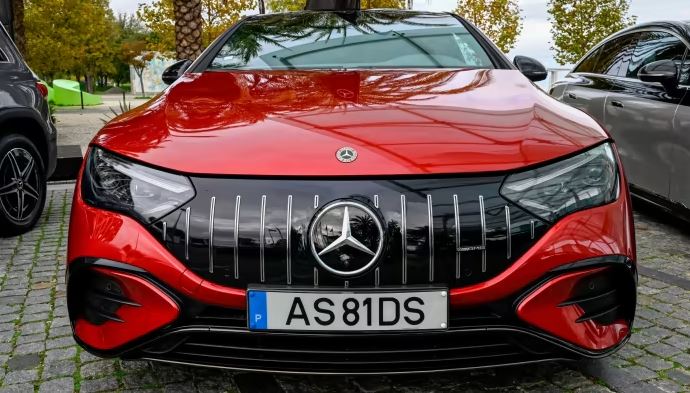Mercedes chief warns of rising protectionism in car industry
Comments by Ola Källenius come as carmaker announces plans to build 10,000 charging points

Khodrocar - The car industry faces the threat of creeping protectionism at a time when global supply chains are more globally integrated than ever before, the head of Mercedes-Benz has warned.
"Politically, there have been trends towards more protectionism over the past three, four, five years, which is something that business is going to have to deal with,” said Ola Källenius, who’s been at the helm of the German premium car brand since 2019.
Shortages in semiconductors and US restrictions on the export of certain chips to China have partly driven the automotive industry to regionalise some of its sourcing, but Källenius argued there were limits to the approach.
"To believe that we can go back to a world where you just do everything by yourself, for yourself, in the geographical location that you’re in . . . that is not how sophisticated industry works,” he told the Financial Times, adding that the creation of any Mercedes car involves "literally all five continents”.
His comments came as Mercedes announced a plan to build 10,000 charging points over the next four years in North America, Europe and China to support the adoption of electric cars.
The rollout, which will be the second largest public charging network built by a single carmaker bar Tesla’s infrastructure, is expected to cost near €3bn and will be split in half with partners in each region. It will begin in the US, where Mercedes has partnered with MN8, the renewable energy company founded by Goldman Sachs.
The rollout of public charging stations for electric vehicles has become a focal point for the automotive industry, as it needs to convince motorists to switch to battery models.
Mercedes is one of the co-founders of Ionity, the European network of charging stations run together with rivals such as Peugeot owner Stellantis and Volkswagen, which operates 2,080 charging points in Europe.
"Politically, there have been trends towards more protectionism over the past three, four, five years, which is something that business is going to have to deal with,” said Ola Källenius, who’s been at the helm of the German premium car brand since 2019.
Shortages in semiconductors and US restrictions on the export of certain chips to China have partly driven the automotive industry to regionalise some of its sourcing, but Källenius argued there were limits to the approach.
"To believe that we can go back to a world where you just do everything by yourself, for yourself, in the geographical location that you’re in . . . that is not how sophisticated industry works,” he told the Financial Times, adding that the creation of any Mercedes car involves "literally all five continents”.
His comments came as Mercedes announced a plan to build 10,000 charging points over the next four years in North America, Europe and China to support the adoption of electric cars.
The rollout, which will be the second largest public charging network built by a single carmaker bar Tesla’s infrastructure, is expected to cost near €3bn and will be split in half with partners in each region. It will begin in the US, where Mercedes has partnered with MN8, the renewable energy company founded by Goldman Sachs.
The rollout of public charging stations for electric vehicles has become a focal point for the automotive industry, as it needs to convince motorists to switch to battery models.
Mercedes is one of the co-founders of Ionity, the European network of charging stations run together with rivals such as Peugeot owner Stellantis and Volkswagen, which operates 2,080 charging points in Europe.
Ionity operates charging points that can deliver a maximum capacity of 350 kilowatts, which is higher than most current electric vehicles, as it prepares for the next generation of cars. Mercedes is planning for charging points with the same maximum capacity.
Källenius said Mercedes’s ambition was to offer its customers an "additional layer of convenience”, such as a chance to pre-book stations and "maybe even better charging rates”. The network will be open to owners of cars from other brands, as Källenius noted that construction of brand-specific charging stations would not be economically feasible.
Latest News


